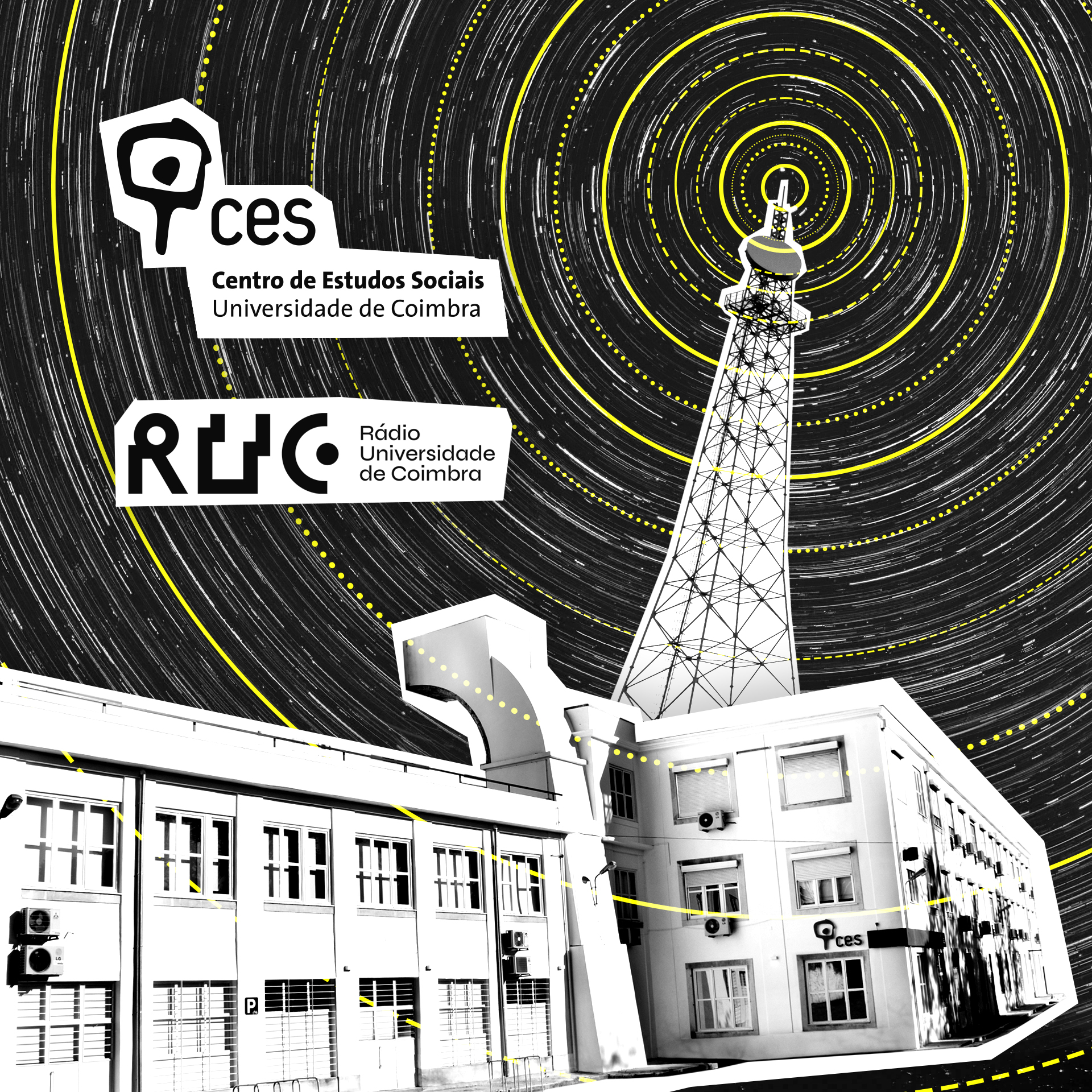Programa de Rádio
Há Vida(s) nesta Cidade #10 com Daniela Nascimento e Paula Duarte Lopes
29 de janeiro de 2022, 14h00 (GMT)
Rádio Universidade de Coimbra
Apresentação
Isabel Simões, Inês Nascimento Rodrigues, Júlia Garraio e Vasco Martins conversam com Daniela Nascimento e Paula Duarte Lopes, investigadoras do Centro de Estudos Sociais, sobre Humanitarismo e Intervencionismo.
Nono programa de uma parceria da Rádio Universidade de Coimbra com o Centro de Estudos Sociais (CES). A colaboração vai continuar no programa “Há Vida(s) Nesta Cidade!” e terá lugar no último sábado de cada mês, a partir das 14 horas.
O programa pode ouvir-se em directo em https://www.ruc.pt.
Nota biográficas
Daniela Nascimento é doutorada em Política Internacional e Resolução de Conflitos pela Universidade de Coimbra, Mestre em Direitos Humanos e Democratização pelo Centro Europeu Inter-Universitário de Direitos Humanos e Democratização de Veneza e licenciada em Relações Internacionais pela Faculdade de Economia da Universidade de Coimbra. É investigadora do Centro de Estudos Sociais e professora Auxiliar no Núcleo de Relações Internacionais da Faculdade de Economia da Universidade de Coimbra, onde lecciona no primeiro ciclo de Relações Internacionais, no Mestrado em Relações Internacionais - Estudos da Paz, Segurança e Desenvolvimento e no Programa de Doutoramento em Política Internacional e Resolução de Conflitos (com avaliação de desempenho Excelente desde a sua integração como Professora Auxiliar na Universidade de Coimbra em 2010 nos triénios 2011-2013, 2014-2016). É atualmente Subdiretora para o Ensino Pós-Graduado e Formação Avançada da Faculdade de Economia da Universidade de Coimbra. Os seus interesses de investigação centram-se nos Estudos críticos para a paz, reconstrução pós-conflito, direitos humanos, ação humanitária, em especial no contexto Africano e Timor Leste. Tem publicados nestas áreas capítulos em livros e artigos em revistas científicas nacionais e estrangeiras bem como participação em vários projetos de investigação com financiamento nacional e internacional. De entre as suas mais recentes publicações destacam-se o livro International Conflict Resolution and Peacebuilding Strategies. The Complexities of war and peace in the Sudans publicado pela Routledge (2017), o capítulo "Una crítica a la construcción de paz liberal desde los derechos humanos. La contribución de los derechos socioeconómicos para la sostenibilidad de la paz" publicado em 2019 no livro Pax crítica. Aportes teóricos a las Perspectivas de Paz Posliberal organizado por Karlos Pérez de Armiño; Iker Zirion ( Editorial Tecnos) e o capítulo "Trials and tribulations: the challenges of building a sustainable state in South Sudan" publicado em 2020 no livro Limited Statehood and Informal Governance in the Middle East and Africa organizado por Ruth Santini; Abel Polese e Robert Kevlihan (Routledge/Taylor and Francis).
Paula Duarte Lopes é Investigadora da área dos Estudos para a Paz (Núcleo de Humanidades, Migrações e Estudos para a Paz) e Professora de Relações Internacionais da Faculdade de Economia da Universidade de Coimbra (FEUC). Doutorou-se em Ciência Política e Relações Internacionais na Universidade Johns Hopkins com a tese Water without Borders; e concluiu o Mestrado em Políticas da Economia Mundial pela London School of Economics and Political Science e a Licenciatura em Economia pela FEUC. Lecciona na Licenciatura em Relações Internacionais, bem como no Mestrado em Estudos da Paz, Segurança e Desenvolvimento e no Programa de Doutoramento em Política Internacional e Resolução de Conflitos. Recebeu o Prémio Ensino 2017 pela FEUC. Foi Vice-Presidente do Conselho Científico do CES (2016-2018). Coordenou o projecto "PPAgua - Respostas públicas e privadas à falta de pagamento dos serviços de abastecimento de água: o caso português" financiado pela FCT, bem como a equipa facilitadora da Estratégia Nacional de Educação para o Desenvolvimento (2017-2022). Coordena actualmente a equipa portuguesa no projecto "e-NOTE - European Network on Teaching Excellence" financiado pelo Erasmus +. Os seus interesses de investigação centram-se sobre dinâmicas de intervencionismo global, incluindo missões de paz, políticas de apoio ao desenvolvimento e governação internacional da água. Desenvolveu investigação na Bolívia, no Brasil, no Canadá, na França, em Portugal, em Moçambique e em Timor-Leste.


